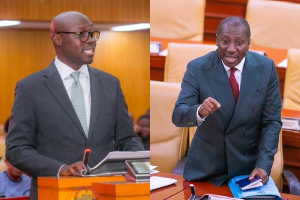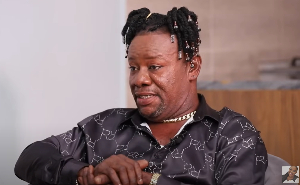Electricity access in Ghana: an assessment of the challenges and the way forward.
One of the major determinants of the economic prosperity of any country is how reliable, accessible and efficient provision of electricity is carried out. Every sector of a nation thrives on electricity. Electricity is needed in undertaking daily activities such as cooking, lighting, heating to powering machines in the industrial setup. It is also essential for quality healthcare delivery, Education, transport, effective communication, mineral exploration and many more. This underlines how crucial and indispensable electricity is for our well-being.
Undoubtedly, Ghana has chalked numerous successes with regards to making electricity accessible to its people. There has been an upward trend in access rate, moving from 72% in 2012 to 76% as of September 2014 which is in line with the country’s goal to achieve universal access by the year 2016 as disclosed by Hon. Armah Buah, Minister for Energy and Petroleum. Certainly, for those of our people living in remote communities who are still not connected to the national grid, this is good news and there is no doubt that this will have a positive effect in their lives.
However, in the last two years as we have all observed, our nation has been plunged into what is now termed as “Dumsor” a local term used to describe persistent, irregular and unpredictable power outages. Ghana is currently confronted with power supply shortage with a total installed generation capacity of 2,846.5 MW megawatts which is insufficient for our needs.
In an effort to control the situation, The Electricity Company of Ghana (ECG), the agency responsible for power supply has embarked on a load shedding exercise which of course is not a new occurrence in our country. Between the periods of 1987 till date, there has been a series of load shedding exercises. In an effort to make meaningful contributions towards the way forward in Ghana’s power sector, it is important for us to have an overview of the electricity situation in the country.
Overview of Ghana Power Sector
Ghana’s power sector until the last decade was 100% run and controlled by state owned enterprises notably the Volta River Authority (VRA) and the Electricity Company of Ghana (ECG).
The former had the responsibility of generating and transmitting power and the latter was in charge of distribution and supply of power throughout the country. VRA came into existence on 26th April, 1961 under the Volta River Development Act. ECG on the other hand came into being in the year 1967 by NLC Decree 125 as a replacement for the then Electricity Department.
The power sector was vertically integrated under the auspices of these two state owned enterprises. What this means is that these two companies controlled all activities, resources and interactions within the power sector, ranging from power generation to supply and all points in between.
The sector had its maiden shakeup in 1987 when ECG had to offload power distribution to the northern sector of the country to the Northern Electricity Distribution Company (NEDCo) a subsidiary of VRA created in the same year.
Furthermore in 2005, the VRA act was amended in conformity with the Ghana Power Sector reform which sought to restrict VRA to only power generation thereby giving birth to Ghana Grid Company (GRIDCo) with the mandate of power transmission. ECG now takes charge of power distribution to the southern parts of Ghana. Besides the aforementioned, there are other institutions which play vital roles within the power sector.
Paramount is the Ministry of energy which has a commanding authority of making policy decisions in the power sector. The Energy Commission (EC) and the Public Utilities Regulatory Commission (PURC) are two of such institutions as well.
Superintending over licensing private and public entities and setting up of tariffs, customer service and also ensuring effectiveness of investments are the duties they undertake respectively.
Until recently, power supplied to the country was mainly hydro. With persistent rise in demand and low water levels during dry seasons, successive governments began to explore other power sources such as Thermal and Solar.
Security of power supply is a major issue all over the world compelling countries to initiate new policies and reforms in their attempts to tackle current upgrades in demand. One such reform came through recommendations by SYNEX Consulting Engineers from Chile a company employed by Ghana government. One recommendation was unbundling VRA. SYNEX also recommended that several distribution channels be established preferably five and be privatized from unbundling ECG and NED. It was from these recommendations that the PURC Act and the EC Act of 1997 were established.
Challenges Confronting the Power Sector
The major challenge confronting the power sector has to do with financing new projects. Investments within the sector are usually capital intensive and therefore requires huge financial assistance. For example, diversification into other power sources, transmission and distribution lines can be very expensive to initiate. This has hindered our ability as a nation to expand and improve upon infrastructures in the power sector thereby limiting generation capacity against the ever increasing demand.
Where there is competition, there is bound to be efficiency since competing companies will work to ensure that the best output is achieved. However, there seems to be little or no competition in our power sector.
Even though it is open to private participation with a small number of independent power producers (IPP), state owned companies still control a large share of the power sector thereby monopolizing the system. With Ghana’s total installed capacity is perked at 2,846.5 MW, IPP only produce 726MW according to VRA power outlook as of April 2015. This implies that, our reforms have only allowed for partial liberalization of the sector hence limiting the contributions of IPP’s.
Furthermore, failure by governments to adjust tariffs to ensure full cost recovery resulted in the situation where tariffs lacked the full cost of power production and delivery and in many cases could not cover even variable operation cost. These factors borne out of the fully regulated state owned monopoly structure, severely compromised power supply reliability.
Way Forward
Full liberalization of Ghana’s electricity market has the potential of increasing its power investments portfolio, diversification of its electricity generation sources, and improving its capacity generation and supply, as well as triggering competition which can lead to efficiency in the long run. Liberalization is simply removal of monopoly rights and the introduction of competition and choice. As of now, Ghana is engaged in partial liberalization that is to say it has lifted the exclusive monopoly rights of power generation to permit new generators to enter the sector and build new plants.
However, partial liberalization only compels new generators to sell their power to a single wholesale supplier and in our case ECG a state owned entity. This model only limits competition for the right to build. On the flip side, full liberalization introduces full competition at all levels within the sector. It involves understanding in detail all the interactions of each sector of the industry and therefore will be viable in our situation.
The overall objective of liberalization is to raise capital, reduce payment of subsidies, lower prices in some cases, improve quality and efficiency of services through competition, take liabilities off government balance sheets and meet other ideological objectives.
Liberalization as a module has its own shortcomings therefore other alternative policy issues such as corporatization, account unbundling, and privatization should be considered in order to arrive at a workable liberalization policy that would lead to access capacity generation through healthy competition among diversified power generation sources in order to resolve Ghana’s power capacity crisis.
Thanks you for your attention.
Long live Ghana
By: Adnan Mustapha
Master of Law graduate in Conflict Resolution and Management in the Extractive Industry
Contact: (adnanmustapha21@gmail.com)
Opinions of Wednesday, 30 September 2015
Columnist: Mustapha, Adnan



















